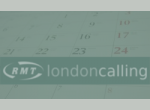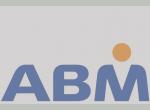RMT General Secretary Bob Crow has written to members regarding the Transport Select Committee's inquiry into the effectiveness of legislation relating to transport for disabled people. The London Transport Region's Executive Commitee member Janine Booth has already commented - highlighted below. Members are encouraged to do so to. Contact details are at the bottom of the article.
Letter from Bob Crow
The Transport Select Committee is currently holding an inquiry into the effectiveness of legislation relating to transport for disabled people. The terms of reference and call for evidence is as follows:
“From 1 October 2010, the Equality Act replaced most of the Disability Discrimination Act (DDA). The Equality Act aims to protect disabled people and provides legal rights in a number of areas including access to land based transport services. In 2009, the UK Government ratified the UN Convention on the rights of people with disabilities. The Convention does not create new rights, but sets out the legal obligations on countries to promote and protect the rights of people with disabilities in all main areas of life, including access to transport.
The Transport Committee has decided to hold an inquiry into the effectiveness of legislation relating to transport for disabled people. The Committee invites submissions on the following issues:
- The effectiveness of legislation relating to transport for disabled people: is it working? Is it sufficiently comprehensive? How effectively is it enforced?
The law should be strengthened to insist that all railway stations are step-free from the street to the trains, that all buses and other public transport vehicles are fully accessible, and that those requiring disabled-accessible licensed taxis are fully able to access them (eg. sufficient rank space is provided at all public transport stations). It should also insist on full accessibility in other ways too, to ensure that passengers with any disability can access public transport.
The law should recognise the crucial role of public transport staff in ensuring access.
There should be full rights for passengers to use the law to enforce access. The law should also empower trade union representatives in public transport providers to enforce access standards and adequate staffing levels.
The law must also strengthen the rights of disabled workers, including transport workers. Recent changes to employment tribunals are a move in the wrong direction, and should be repealed.
- The accessibility of information: including the provision of information about routes, connections, timetables, delays and service alterations, and fares
Crucially, stations must keep ticket offices open, so that disabled passengers can use them for information and ticketing issues.
- The provision of assistance by public transport staff and staff awareness of the needs of people with different disabilities
- What can be learnt from transport provision during the Paralympics and how can we build on its successes?”
On the more negative side, many disabled people could not travel around London on public transport during the Games because of its continuing inaccessibility.
There were also severe restrictions on disabled passenger’s access to black cabs, which were unreasonably prevented from using the Olympic lanes or from entering the Olympics site area.
I would be grateful for any information and views on the above which will assist in the compilation of the Union’s submission. Please email them to our Equal Opportunities Officer, J [dot] Webb @rmt.org.uk by 7 January 2013 or send to us here and we can pass on your comments or give you the necessary contact details.
- 2873 reads






